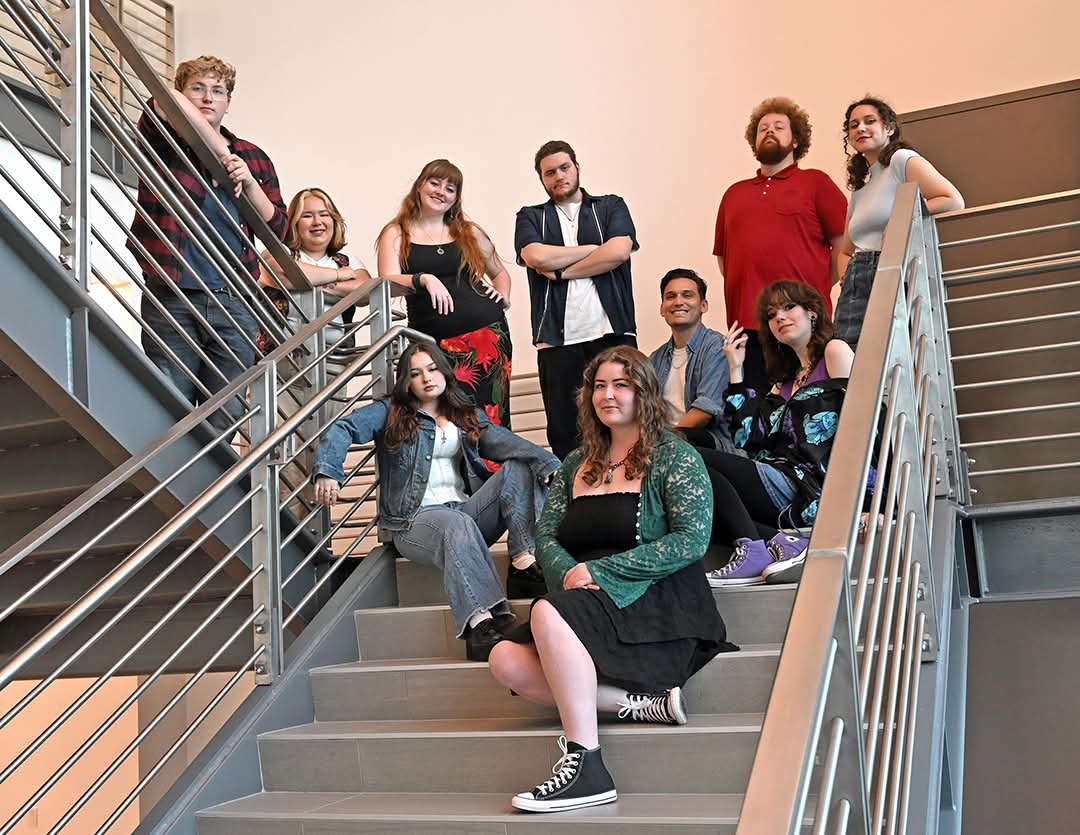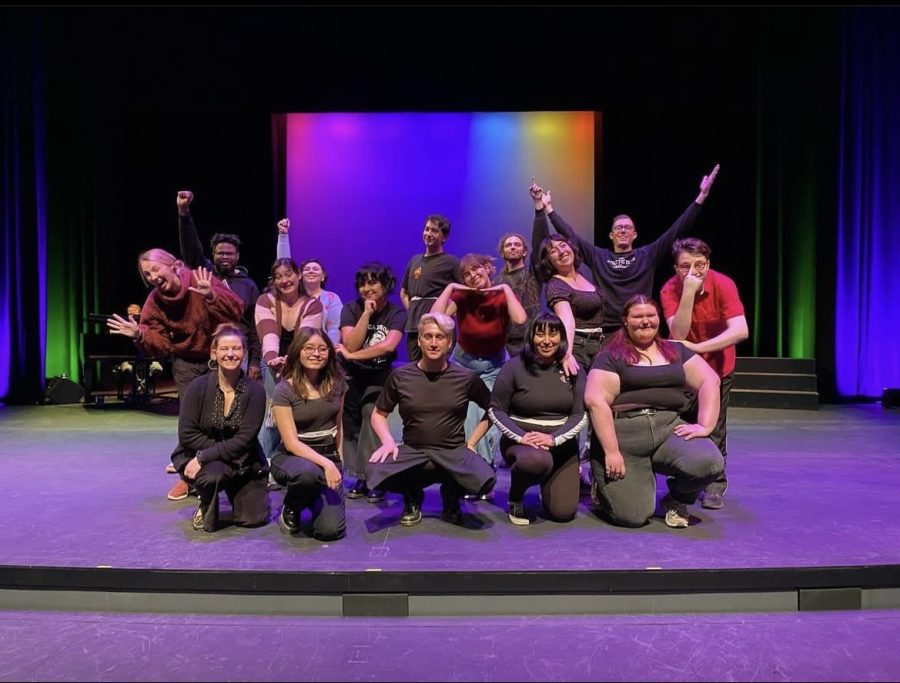
On the evening of February 3, Grossmont students and their families were witnesses to the Grossmont Theatre Department’s performance of “Inside the Actor’s Process: IDENTITY.” Theatergoers were treated by the ensemble cast to a wide selection of performances and emotions, resulting in laughs and sobering silence alike.
The reason for the range? “Inside The Actor’s Process: IDENTITY” is structured as a collection of scenes from various other plays, including “Othello” and “The Boys Next Door.” The show’s ensemble cast each took on multiple roles during the runtime, helping bring these slivers of stories to life.
However, those in the Stagehouse Theatre were not the first audience to see “IDENTITY.” The show had previously been performed at nine local high schools including Steele Canyon, Granite Hills and El Capitan High School. “IDENTITY” comes as the latest entry in the “Inside the Actor’s Process” series, which in the past years has traveled to many area schools as part of an effort to inspire students about the performing arts.
“One of the main things that we want is that we want to influence students to come to , because the faculty here is just as professional as a university,” says cast member Jordan Shepard. “It’s always good to recruit young artists to help change ideas; art helps to create change.”
Shepard is a veteran of the “Inside the Actor’s Process” series and described a variety of themes the show has had in past years, from romance to monsters.
Shepard explained, “In this production , I play a character named Scratch. He is the Devil from Jen Silverman’s ‘The Witch,” and then I was Emilia from Shakespeare’s ‘Othello.’”
From classics to comedies, it can be a challenge to keep so many narratives centered on a central idea. Benjamin Cole, the director of “Inside The Actor’s Process: IDENTITY,” outlined that the selection process for the play scenes was based on looking for plays with strong themes of how people interpret and react to their own and other’s identities.
As far as challenges go during the actual production, Cole talked about conflicts with rehearsal due to scheduling or illnesses, which found a solution by having a “number of understudies” who took the place of cast members as necessary.
Inclusion comes across as a core tenant of not only “IDENTITY” but the theater program at large, which always seeks to inspire future thespians to begin their journey, whether in high school or already attending Grossmont College.
Cole spoke on working with actors who aren’t necessarily Theater majors or even students at Grossmont (one enrolls in a course at Grossmont once they join the cast), and how this offered a fun opportunity to see some new faces.
When asked what makes Grossmont College Theater special, Shepard emphasized the theater program’s power to “help build stories and have open conversations,” such as “IDENTITY” covering topics like same-sex relationships and people with special needs.
Cole echoed this sentiment; when asked his favorite part of “IDENTITY,” Cole pointed to the last segment from “The Boys Next Door,” for its celebration of uniqueness and “the positivity of celebrating the human condition.”
As the theater program moves forward, one can hope that it will continue to be an area that provides an opportunity for expression and diversity alike.







